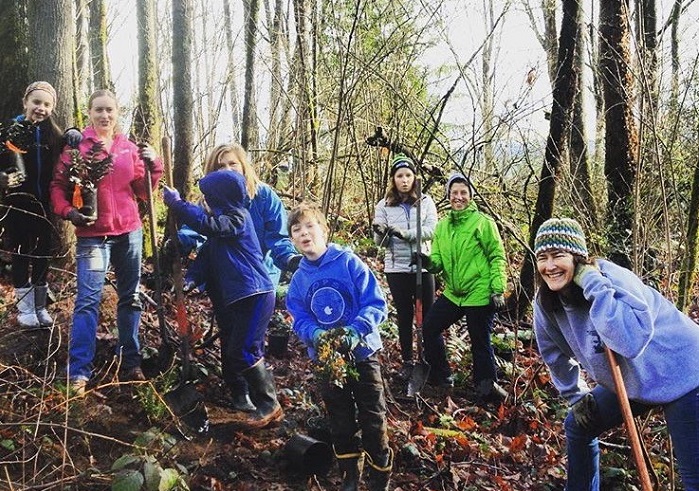January is full of new beginnings and a renewed sense of purpose. It's also the month that hosts one of my favorite observances: Martin Luther King, Jr. Day. On this third Monday in January, people all over the country honor the legacy and impact of this courageous role model's spirited social activism and selfless community service. I can’t think of a more pressing time to be inspired by these tenets, to come together to help our communities and feel a shared responsibility to make our places healthy and vibrant for all.
Martin Luther King Jr. was an iconic “servant leader,” a philosophy that inspires and drives my work in leadership development programs. A servant leader is one who listens, creates solutions that work for everyone, heals divisiveness, builds community, collaborates with others, asks for advice, acts with humility, lifts others up and empowers people. The notion of servant leadership, embedded in many spiritual and faith-based ideologies, was coined by Robert Greenleaf in his 1970 essay, The Servant as Leader. He described it as:
“The servant-leader is servant first… It begins with the natural feeling that one wants to serve, to serve first. Then conscious choice brings one to aspire to lead. That person is sharply different from one who is leader first, perhaps because of the need to assuage an unusual power drive or to acquire material possessions…The leader-first and the servant-first are two extreme types. Between them there are shadings and blends that are part of the infinite variety of human nature.
The difference manifests itself in the care taken by the servant-first to make sure that other people’s highest priority needs are being served. The best test, and difficult to administer, is: Do those served grow as persons? Do they, while being served, become healthier, wiser, freer, more autonomous, more likely themselves to become servants? And, what is the effect on the least privileged in society? Will they benefit or at least not be further deprived?
A servant-leader focuses primarily on the growth and well-being of people and the communities to which they belong. While traditional leadership generally involves the accumulation and exercise of power by one at the “top of the pyramid,” servant leadership is different. The servant-leader shares power, puts the needs of others first and helps people develop and perform as highly as possible.”
We often look to Dr. King's character and legacy for leadership lessons. And just as important are the many people who make choices every day to act as servant leaders. I see these small acts that accumulate to big impact all the time at Philanthropy Northwest, whether it is member foundations working in community, various stakeholders coming together to collaborate, programs offered to encourage inclusivity and equity, and every day interactions between people and teams listening to each other to develop solutions. Our State of Generosity, a joint project of the Council of Michigan Foundations, Michigan Nonprofit Association, Michigan Community Service Commission and the Johnson Center for Philanthropy, outlines six effective skills to be a servant leader every day:
- Listen actively
- Practice empathy
- Be helpful to others
- Build a common vision of the future
- Empower others and steward relationships
- Build community
I hope to explore these skills more intentionally with our staff in 2017.
A Day of Service
Rather than looking at MLK Day as a day OFF, organizations focused on philanthropy and volunteerism encourage Americans to see it as a day ON. Whether you're fighting racism and poverty or preserving nature and wildlife, the MLK Day of Service offers an opportunity to connect with each other and work together to support a healthy and vibrant community.
Last year, a handful of Philanthropy Northwest employees charged the gray and cloudy skies to steward an urban forest to improve air and water quality in south Seattle with EarthCorps. This Monday, we will roll up our sleeves, pull up our rain boots and serve with City Fruit, a Seattle-based nonprofit that promotes urban fruit to nourish people, build community and protect the climate.

As we go into another blustery January day, let's commit to celebrating all the goodness that Dr. King stood for and being ready to respond to his urgent, timeless question: “What are you doing for others?” I hope you can join me and the thousands of others who will be serving community on January 16, and continue working on those six skills to become a more effective servant leader in 2017.
Erin Thomas is Philanthropy Northwest's talent partner. She can be reached at ethomas@philanthropynw.org.